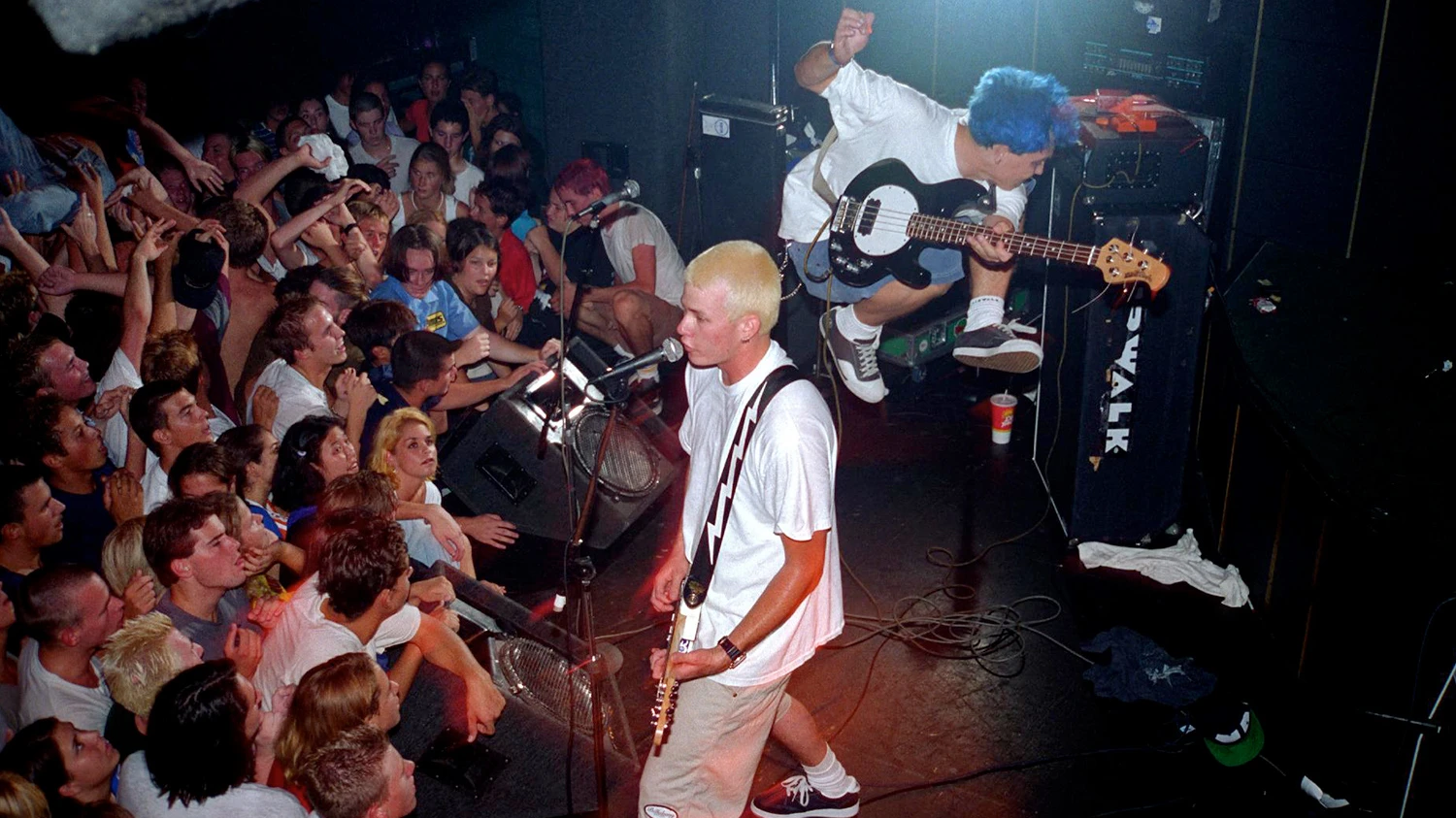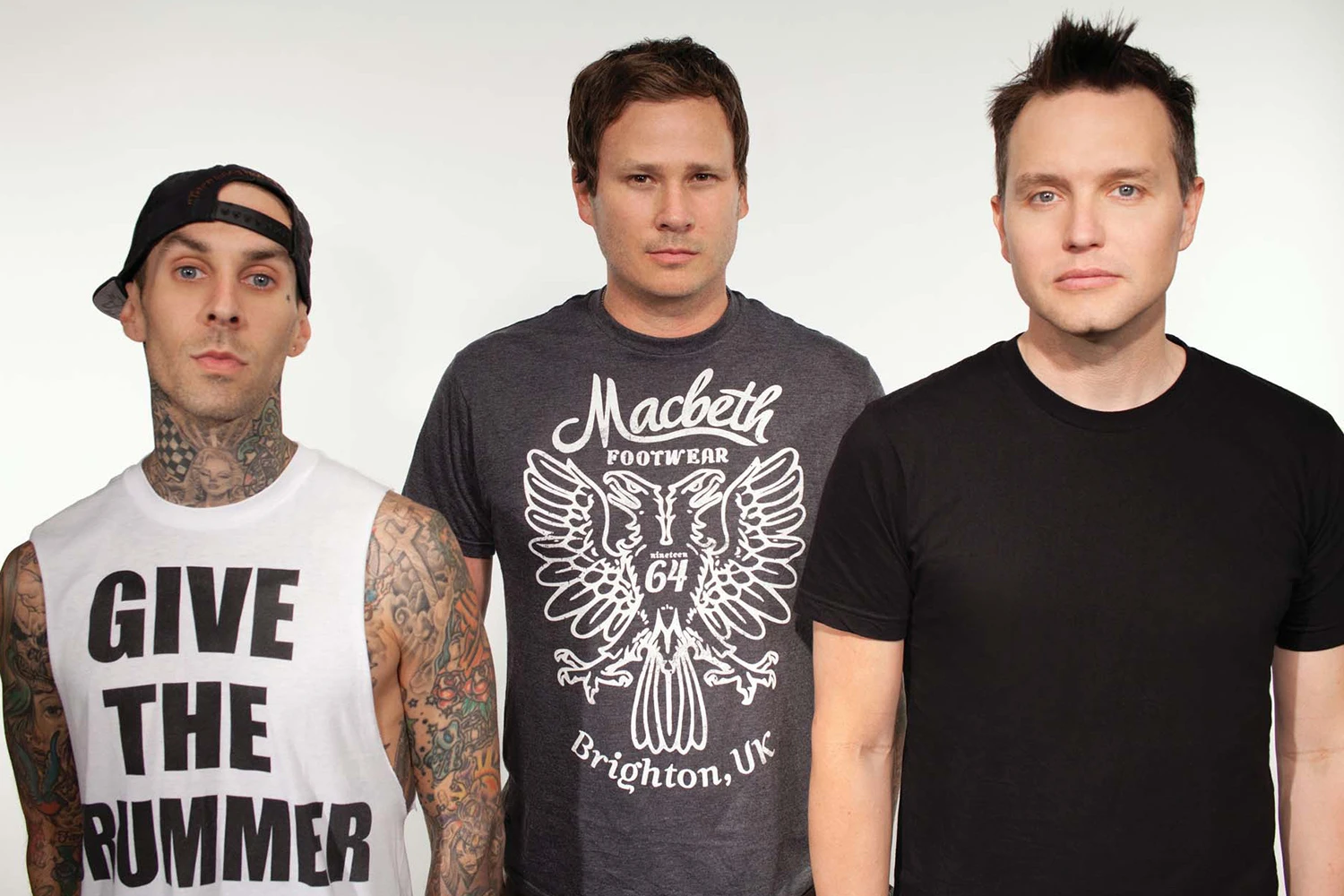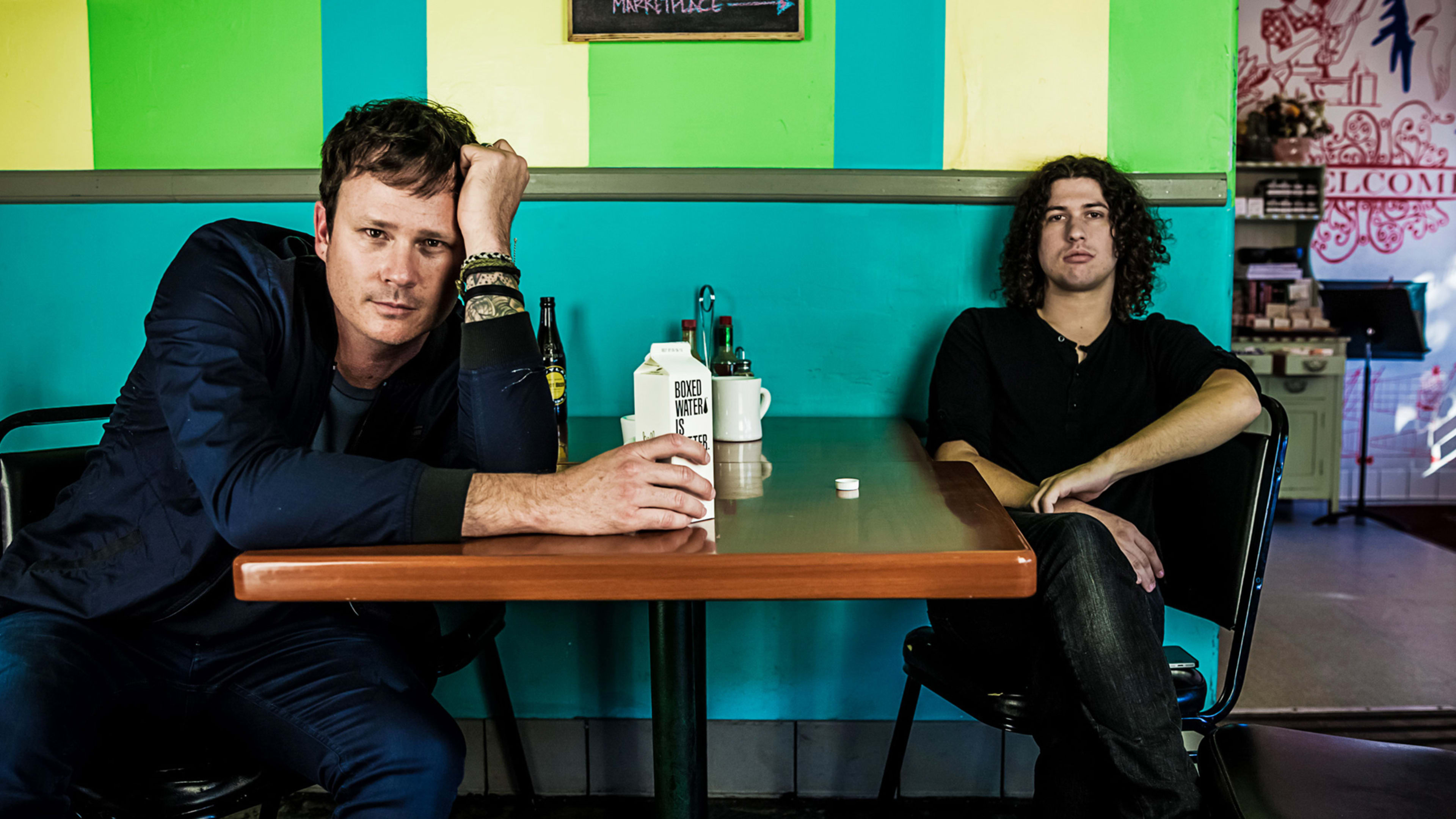Kanye West, Jack White, and Pearl Jam all have something in common—Tom DeLonge, Blink 182’s guitarist and singer. More specifically, his software platform, Modlife. The same guy who rose to Billboard chart-topping fame with naked live shows and videos (see: “What’s My Age Again?” for a censored version), is now making web software for the biggest rock stars on the planet.

You’re probably confused. DeLonge is used to the blank faces, even from music-business insiders. “People always go, Wait, this is Blink’s company?” he says.
Modlife is a customizable software platform that streamlines the process of selling digital and physical product packages. Thinking about buying an iTunes album? Modlife will encourage that purchase with a hand-screened poster to go along with it. Want to see the live show? Modlife provides the opportunity to pay extra and get access to the usually off-limits soundcheck. “We’re making the band revenue by providing tools to monetize all these different elements of their business,” DeLonge says.
And it’s a lot of revenue. When Angels and Airwaves, DeLonge’s current band (whose new album, Poet Anderson The Dream Walker, is out Dec. 9), went on its last tour, DeLonge sold a limited number of VIP ticket packages–which doubled the tour income. Forty percent of revenue from each new Angel and Airwaves release comes from direct-to-consumer digital and physical multimedia packages via Modlife. The software also cuts costs by integrating programs like a live chat into its platform, so artists don’t have to pay for a third-party host. They’ve even innovated a way to avoid scalpers by creating a lottery system where VIP fans sign up to win the chance to purchase prime seating for a variety of concerts in different venues. Even if they won, scalpers would potentially have to travel to nearby cities to sell their tickets, taking away most cash gains and incentive. When Pearl Jam used the lottery program to sell tickets to its Ten Club members, one of the biggest rock n’ roll fan clubs in the world, it was the first time ticket sales didn’t crash the band’s website. After that, Live Nation developed its own version of the Modlife software.

But wait. This is Blink’s company?
Startups are actually nothing new to DeLonge. As his public punk persona was selling chart-topping albums with titles that were also masturbation puns (see: Take Off Your Pants and Jacket), he was also messing around in the tech space. Enema of the State sold a million copies within two months of its 1999 release, but “we were looking into a plan B,” DeLonge says. “Napster was just hitting and the epicenter of our fan base was suburbia where everyone had the newest Apple computer.”
So that year he built loserkids.com. It was one of the first websites curating, selling, and monetizing the California surfer-dude lifestyle that Blink-182 represented. It turned out to be a profitable leap during a major industry transformation. Ever since Napster, many bands haven’t been able to rely on income from album sales. On top of that, third-party distributors sell a band’s tickets, records, and merch, taking a cut from each sale. So DeLonge started thinking about how he could monetize other aspects of a band’s experience. Out came Modlife in 2007, right around the time Blink-182 decided to part ways.
It was first built to sell the work of To The Stars, DeLonge’s startup “transmedia” company, because Modlife works best with a multimedia artist or collective that can sell packages of work in a variety of media. DeLonge’s dream example is Tim Burton, who could sell his art, books, and movies together, which might push fans away from downloading or streaming a movie with little potential profit for Burton. DeLonge has invested hundreds of thousands of dollars in this platform because he envisions the future of art as a place where all artists are releasing all kinds of media. “Kids use the computer to record in their living room, but they’re also using the computer to make movies on their iPhone,” he says. “The artists of the future are going to be doing a lot more ambitious things that will all blend together.” And DeLonge will be there to monetize it all in one simple package. To him, it’s the package that entices people to make a purchase instead of just stream or download a free copy.

For now, Modlife caters to “a lot of instances where bands don’t trust labels and the labels still need to do something bold to have a great capital life on all the different things they’re planning,” DeLonge says. Modlife makes money through revenue share, and always takes a minority position to build trust with the artist. With Modlife’s platform of selling directly from artist to consumer, major-label artists can now make money independently.
So it’s time for artists to look beyond all the third-party “corporations that are stealing from them.” “People need to rethink what streaming is doing for them,” DeLonge says, explaining that services like Spotify work for an older catalog, but less so for an artist actively trying to sell records. As for all the people streaming music, in a flashback to his uncensored Blink-182 days, DeLonge recently told FasterLouder that streaming is like “condoning the Chinese that are killing elephants for their tusks and carving ivory statues.”
Yup, Modlife’s still got the spirit of Blink—now it’s just decided to sell all the small things.
Recognize your brand’s excellence by applying to this year’s Brands That Matter Awards before the early-rate deadline, May 3.
